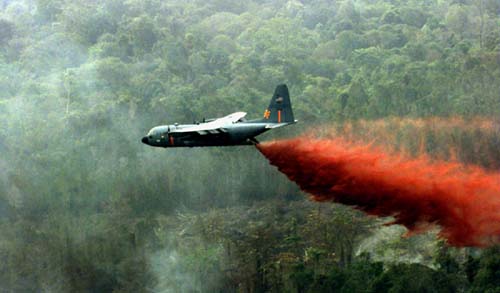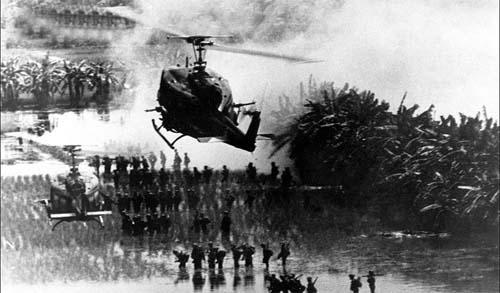
Will Biden address the Agent Orange legacy during his visit to Asia?
Chen Weihua
US President Joe Biden wrote on X (formerly Twitter) on August 26 that “after Vietnam, we learned how the harmful effects of exposure to Agent Orange took years to manifest in veterans, leaving too many unable to access care when they needed and deserved it”.
“The PACT Act means today’s veterans and their families won’t suffer those painful denials,” he said, referring to the law he signed a year ago to provide better healthcare and benefits for US veterans exposed to Agent Orange and other toxic substances during war.
About 300,000 US veterans have died from exposure to Agent Orange, almost five times more than the 58,000 soldiers who died in combat during the Vietnam War. Many veterans and their offspring are still suffering from the horrible effects of Agent Orange, which I learned after watching online a talk at the George Washington University four years ago by a group of activists sharing their stories and findings in the United States, Vietnam, Laos and Cambodia.

The US military sprayed 19.5 million gallons of Agent Orange during the course of the war in a bid to deny the Vietnamese people food supply and shelter in concealed environment of forests. In the areas where Agent Orange was sprayed, dioxin has contaminated water and soil, inflicting huge damage on people’s health and the local ecology.
The Vietnam Red Cross has estimated that more than 3 million Vietnamese have been affected by Agent Orange and, as a result, are suffering from cancer and various physical and neurological problems. At least 150,000 Vietnamese children born after the war had serious birth defects caused by dioxin. While the US government has symbolically provided funds to help tackle the legacy issue, the funds are negligible given the actual amount of money required and a tiny fraction of the money allotted for US veterans.
As for Laos and Cambodia, two countries which remained neutral during the Vietnam War, the US government is in denial despite the US military spraying Agent Orange in both countries.
The US bombarded Laos and Cambodia with 475,000 and 40,900 gallons of Agent Orange respectively, Charles Dunst, a freelance writer based in New York, wrote in the Atlantic magazine in 2019 quoting a study by US scientists. He said this does not include the undocumented spray drift which could have occurred in Cambodia.
“In the Vietnam War, the US used a borderless weapon and yet has since used national borders to leave those exposed to dioxin to suffer without support,” Dunst wrote.
Against such a backdrop, Biden’s bragging about the PACT Act is a humiliation for the millions of victims in Vietnam, Laos and Cambodia. His tweet came 10 days before he embarks on a trip to Asia where, among other things, he is scheduled to attend the G20 Summit in New Delhi from Sept 9 to 10 and visit Vietnam on Sept 10. Biden, however, will skip the US-ASEAN Summit and the East Asia Summit in Jakarta, both of which will be attended by leaders from ASEAN member states including Vietnam, Laos and Cambodia.
The White House said Biden will meet with Nguyen Phu Trong, general secretary of the Communist Party of Vietnam, to discuss ways to further deepen cooperation between the two countries. But it did not mention anything about Biden addressing the legacy of Agent Orange.
On July 29, Biden claimed at a campaign reception in Freeport, Maine, that “I’ve gotten a call from the head of Vietnam, desperately wants to meet me when I go to the G20”.
Western media outlets, such as CNN and Reuters, were quick to interpret Biden’s trip as a bid to counter the influence of China and Russia in the Asia-Pacific region, but none of them bothered to remind him of the horrible legacy of the US’ use of chemical weapons in the three countries, a legacy that still haunts many people even almost half a century after the war ended.
Published in China Daily
